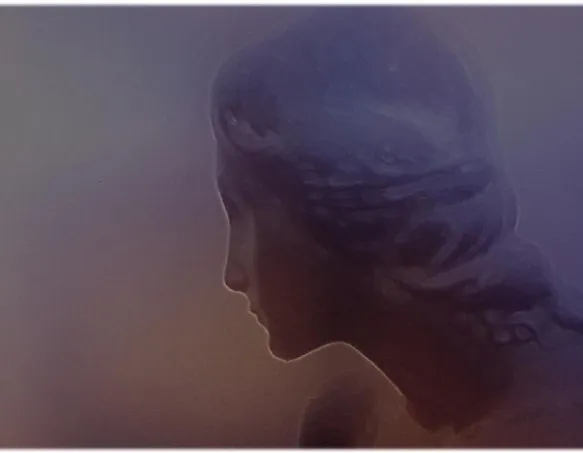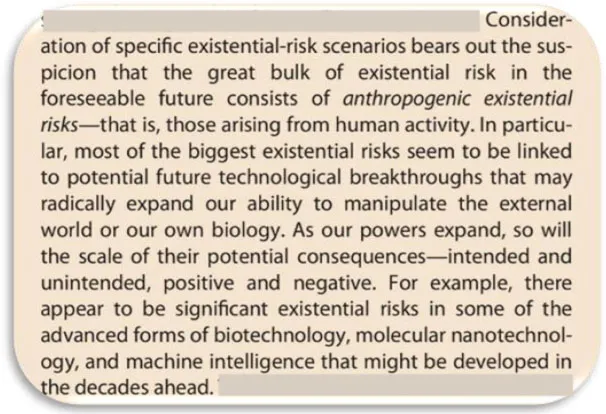![]()
The Little Mermaid, Edvard Eriksen (1913)
Incessantly, longingly gazing for ‘the human’, for human happiness.
Post- and transhumanism: thematics
Central issues of post- and transhumanism are brought to the surface from the bottom of the sea and the mental depth of old tales. Profound existential questions arise, such as, what does it really mean to be a human being contra not to be? Is there a human essence, an absolute decisive “core”? such, that if transgressed, one cannot continue to speak of a human being; or is homo merely a plastic, dynamic and contingent entity. An entity, of which one paradoxically may say that its only absolute and fixed essence is that of being a free flux, always changing, always becoming – a perpetual statu nascendi.13
The little mermaid remains enchanted, and – in an aura of “Who doesn’t dare, doesn’t win”– she seeks out the wicked sea-witch, the genetic engineer of that time. A deal is made, and the virgin princess is modified, transcribed14 and translated into a being with two legs. Ergo, altered into a human: » transformed, in the pursuit of a better life, happiness and fulfilment of longings.«15 All human, or shall I say, all too human.16
The driving forces for post- and transhumanism clearly reveal themselves – even though inversely. Because, where the present-day woman, through modern biotech, wants either to transform herself beyond the well-known human or simply to improve HOMO-version-I … » in the pursuit of a better life, happiness and fulfilment of longings « … the sea-princess desires to become the original version-I.
She is infatuated: Everything that takes place on the other side, above the surface in the human world, is richer and fuller; one may say that it constitutes an imagined, enhanced reality, in terms of both the earthly life as well as the eternal celestial. And thus, the story grapples with the key existential issues of human life that philosophy has addressed since antiquity: What is reality, what makes for a happy life and what to expect post-mortem?
This conglomerate plots the fairy tale into the contemporary discourse of post- and transhumanism. Surely, as the most ardent and radical biotech aficionados envision 'eternal life' – the mind, the soul or psyche as a continuous entity. Either, (i) in a biologic form (biological instantiation), where the genetic ageing-code of the body is decoded, or, in a scenario, where the mind is transferred to new bodies, successively, as the old ones are worn out – or, (ii) in a digital form, where the mental self, via a complex digital handling of organically stored information, is electronically transmitted to a hardware medium (digital instantiation), such as a high-tech memorycard-flasher, and then, plugged into a computational system and-or a robot-body, the posthumanistic being may live on ad infinitum.
This updated tech-kind of eternity, a secular one, dragged down to earth, into the sludge – evidently charts a new course for immortality: Everlife-version-II. A grave matter: a posthumanistic dream, or a bleak dehumanising risk. If realised, it will undoubtedly change the being of our beings, that is, the existence of the creatures that are us. And I write ‘creatures’, as very pertinently, some may object to humans, since it has always been essential to humankind, and for that sake to all life, to spring up, live its due time and pass away – in a passing on. Tampering with the cyclic principle of life and the balance of succession is a danger, fear the fearful, fearing overcrowding and haughty individuals, knowing nothing of the humbling physical decline and death. Reasonable worries that call for reflection.
13 The notion: statu nascendi lat. ~ in the nascent state, in the course of being formed or developed.
14 The notion: Transcription, the synthesis of RNA from DNA. Genetic information flows from DNA into protein, the substance that gives an organism its form. This flow of information occurs through the sequential processes of transcription (DNA to RNA) and translation (RNA to protein). britannica.com/science
15 Phrasing: my paraphrase of the American Declaration of Independence (1776)
16 In remembrance of F.W. Nietzsche’s work ”Human, all too human” (1879).
![]()
Existential risks
The first angel to go: Boström and »existential risk«
When articulating the forebodings about the pending biotech era, I ask you to bear in mind, dear Parloir reader, the two critics mentioned in the essay trilogy part I: N. Katherine Hayles and Francis Fukuyama. Both advocate cautiousness and place serious doubts about the splendour of the new 'Millennial Kingdom'.
»existential risk«
∫ „An existential risk is one that threatens the premature extinction of Earth-originating intelligent life or the permanent and drastic destruction of its potential for desirable future development“
∫ „Despite their importance, issues surrounding human-extinction risks and related hazards remain poorly understood. “
Niklas Boström
In line with this critical approach, the Swedish born, Oxford scholar Niklas Boström17 (1973-), merits attention. Boström is a recognised critic in the fields of superintelligence and human enhancement – and, future risks. Yes, perils of the future. His notions of »existential risks« and »anthropogenic existential risks«, are of interest, when probing the issues of human essence and the dangers mankind confronts »when man 'lego' the building blocks of life«. … As an example of a »manmade existential risk«, Boström writes: ix
Others – who fearfully have a fright – such as the ecological sceptics, call attention to global heating (full-scale runaway), as one future danger that radically will change and impair the conditions for humankind. Proponents of a more positive spirit argue that such apocalyptic scenarios are exaggerated, given that mankind throughout history has proven to be a strong and a competent survivor. However, Boström refutes this confident view of mankind with a reasonable counter argumentation. On the one hand, he admits: x
But the arising point is that humanity here and now and in the future faces quite different threats than natural existential risks, like glacial periods, earthquakes and asteroid collisions. The real danger becomes man himself, »when man 'lego' the building blocks of life«, of this, we have no pre-experience.
Ergo, we cannot validly write off the dystopian risk and saturated doomsday fear. Possibly, man may commence to 'lego' well, mastering the techniques, bioengineering himself constructively, enhancing and-or alleviating himself; yet, the play may end up less attractive, in a deconstruction.
Please, bear in mind: “He, who too soon wants to be master, long stays a servant.”
Such wrong turnings of biotech, or at least unpredicted outcomes, have already been detected in transgenic insect experiments.18, 19 It concerns a Brazilian real-life study, aiming at the elimination of mosquitoes. A dominant lethal gene was incorporated in a male strain which subsequently was released into the local habitat and population. In theory only resulting in an overall reduction of insects. Yet, viable hybrid offspring between the release strain and the target population, sufficiently robust to reproduce in nature, sh...




